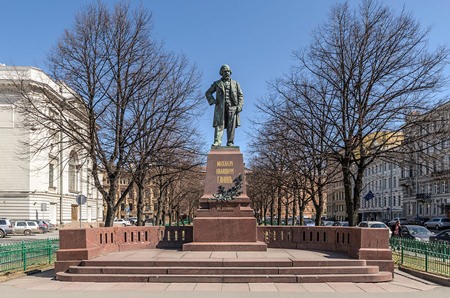
Some years ago, when I was involved in the gentle art of music education, I once became intensely irritated on hearing a well-meaning but ill-informed teacher talking to her class about “happy sounds” and “sad sounds”. She was trying to explain the difference between the intervals of the major third and the minor third, claiming that the first sounded happy and the second sounded sad. Of course, all this is complete and total nonsense and with as much tact and diplomacy as I could muster, I told her so. Now maybe you are not into this technical stuff, but it’s very easy for me to prove my point by using a piano. At least, it would have been if I had remembered to bring one with me.
It was unfortunate that the teacher was feeding the children the hopelessly naïve idea that music is either “happy” or “sad”. There are countless other shades of meaning and emotion between and outside these simplistic notions. Some music can be so full of radiant joy and elation that it makes your spirits soar and you find yourself weeping. Now why is that, I wonder? Well, my knowledge of psychology is such that I’d prefer to leave that for you to ponder. You may recall that Hans Christian Andersen once wrote, “Where words fail, music speaks”.
I mention all this because the other day I found an article in which someone had listed examples of “music that makes you happy” or some such inane title. Perhaps this kind of thing is so subjective as to render such list-making rather pointless. In any case, I’d guess that peoples’ reaction to a piece of music is informed, consciously or otherwise by their frames of reference. But let’s not get too technical, for it’s the weekend after all.
Even so, I can think of many pieces that uplift the spirits and brighten the day. Perhaps they even evoke a sense of merriment – for at least part of the time. Most composers know that unrelenting jollity – or unrelenting melancholy for that matter – can become wearisome. In Gustav Holst’s piece Jupiter, the Bringer of Jollity the jovial mood eventually gives way to one of his noblest melodies. Dvorák’s effervescent Carnival Overture, which was also listed, includes a beautiful middle section of almost heart-breaking nostalgia. And talking of overtures, here are three that might lift your spirits too. They’re all somewhat similar in structure, with vivacious opening themes contrasted with slower more reflective melodies.
This is a sizzling overture, which I first came across at the age of about fourteen. It’s remarkable that the music sounds so modern for something written in 1840. Glinka was the father of Russian classical music and although he was a prolific composer, he’s known in the West for only a handful of works. He’s highly regarded in Russia where three music conservatories are named after him.
Conductor Valery Gergiev takes the overture at a fair old lick, revealing the competence of this superb Russian orchestra. For some reason, he appears to be conducting with the aid of a toothpick.
This was the first piece I heard through a pair of stereo headphones when I was about twenty-two. It sounded wonderful at the time and still sounds as fresh as ever.
As a child, Kabalevsky was deeply interested in the arts and was an accomplished pianist, also dabbling in poetry and painting. He became a prolific composer of piano music, much admired by Vladimir Horowitz. Like Glinka, little of his work is known in the West with the exception perhaps of the Third Piano Concerto. The three-act opera Colas Breugnon was written between 1936 and 1938 and based on a novel by Romain Rolland.
Leonard Bernstein (1918-1990): Overture to Candide. London Symphony Orchestra cond. Bernstein (Duration: 04:41, Video: 480p)
Perhaps best known for his opera West Side Story, Bernstein was also an author, music lecturer, and brilliant pianist. Music critic Donal Henahan, claimed that Bernstein was “one of the most prodigiously talented and successful musicians in American history.” His operetta Candide was first performed in 1956 and based on the novella of the same name by Voltaire, written almost exactly two hundred years earlier.
The overture is a lively and engaging work with a catchy opening theme which gives way (at 01:21) to a passionate melody that recurs triumphantly later in the work. The exciting coda which begins at 03.23 makes a satisfying conclusion to this heart-warming overture. An added bonus is that when he’s conducting, Bernstein is always entertaining to watch.
 |
 |
 |





